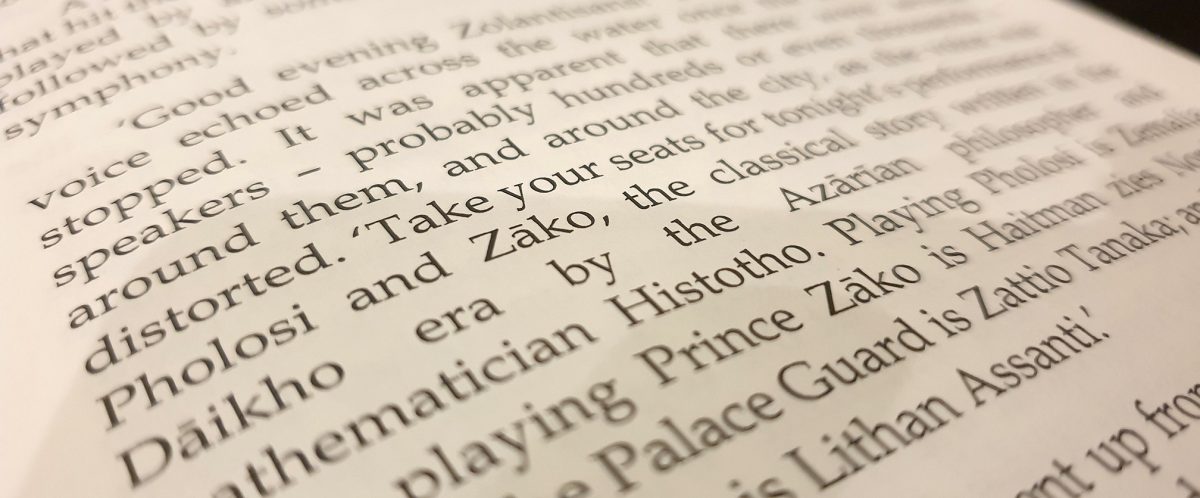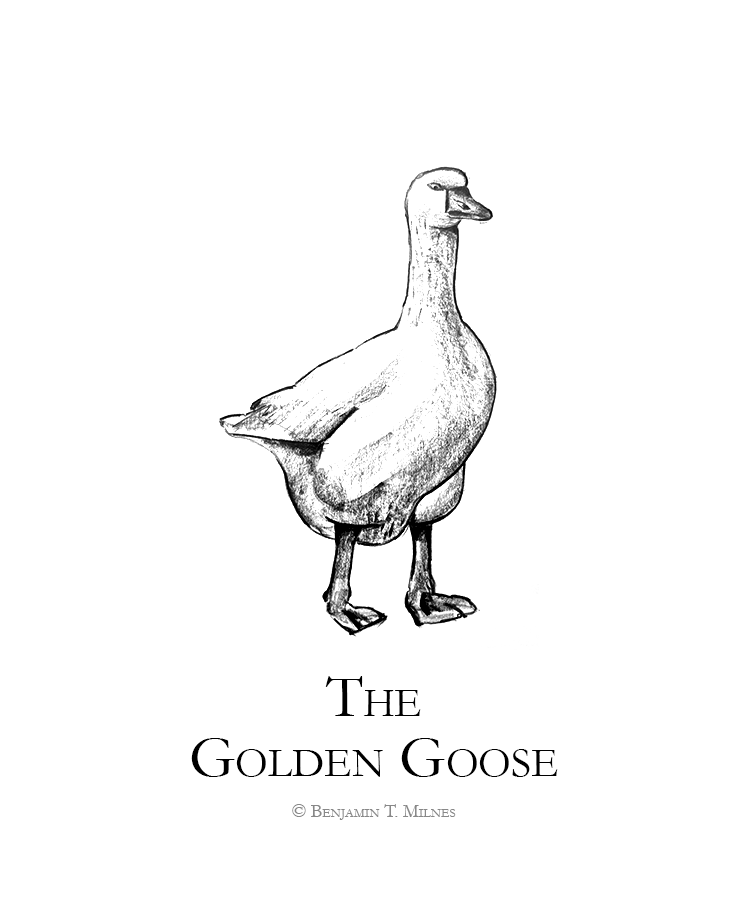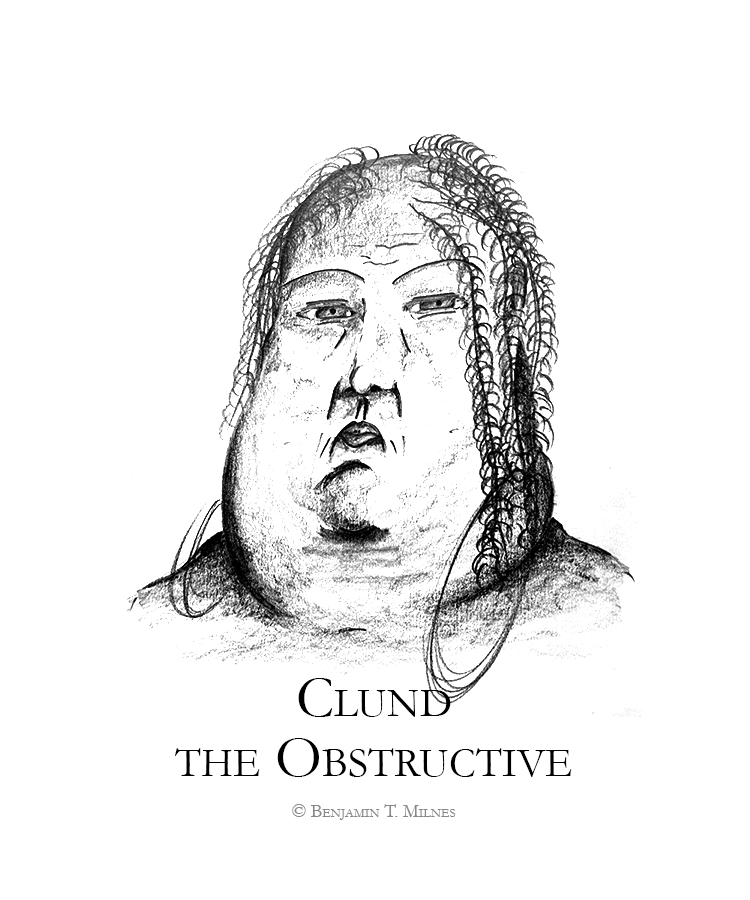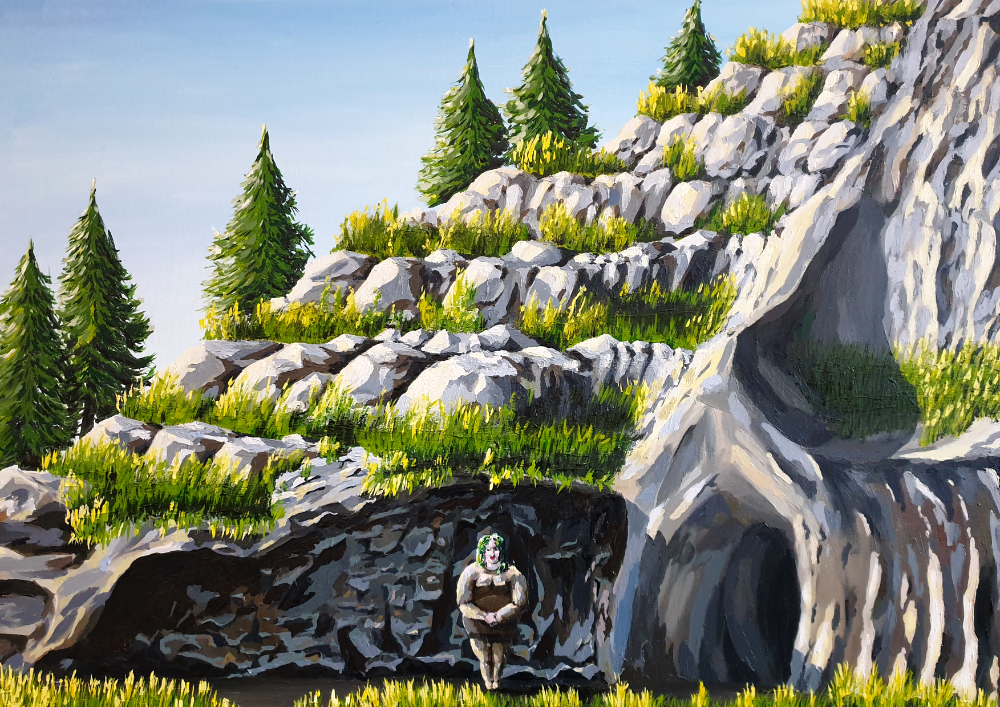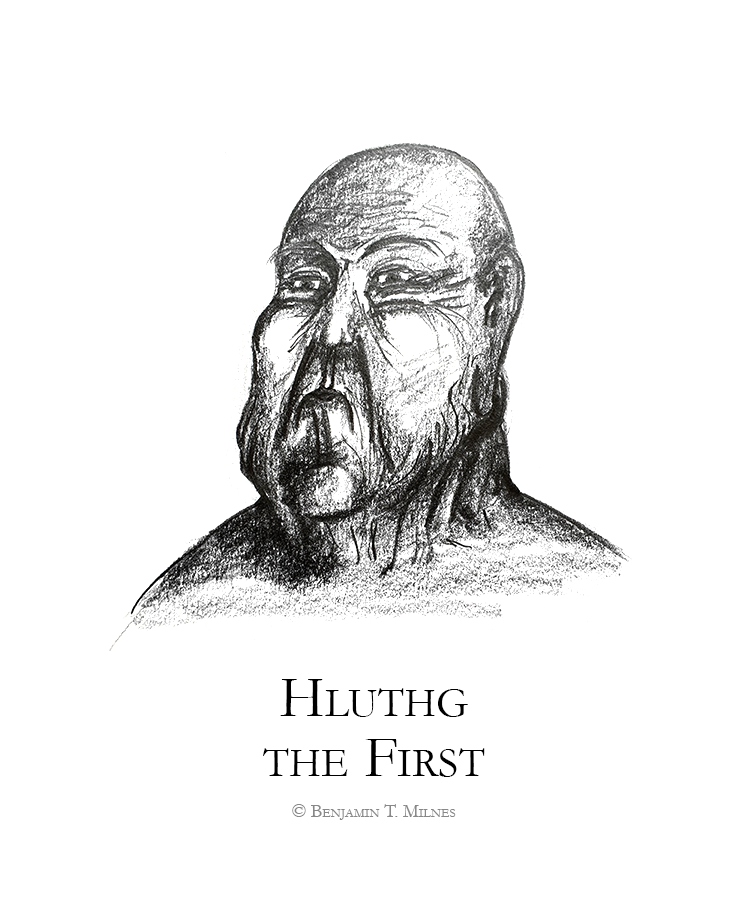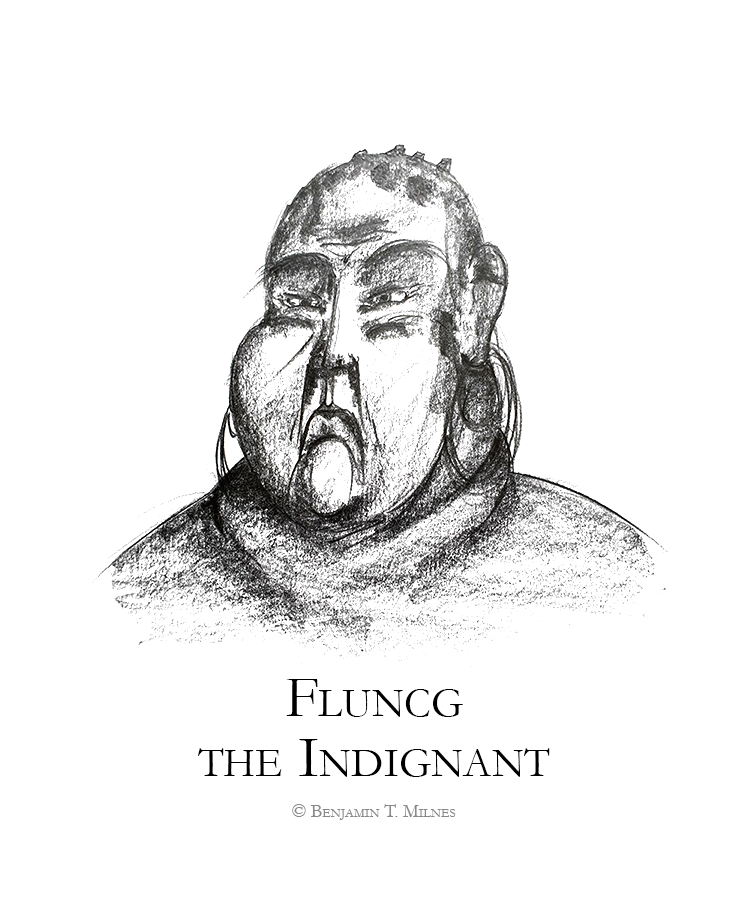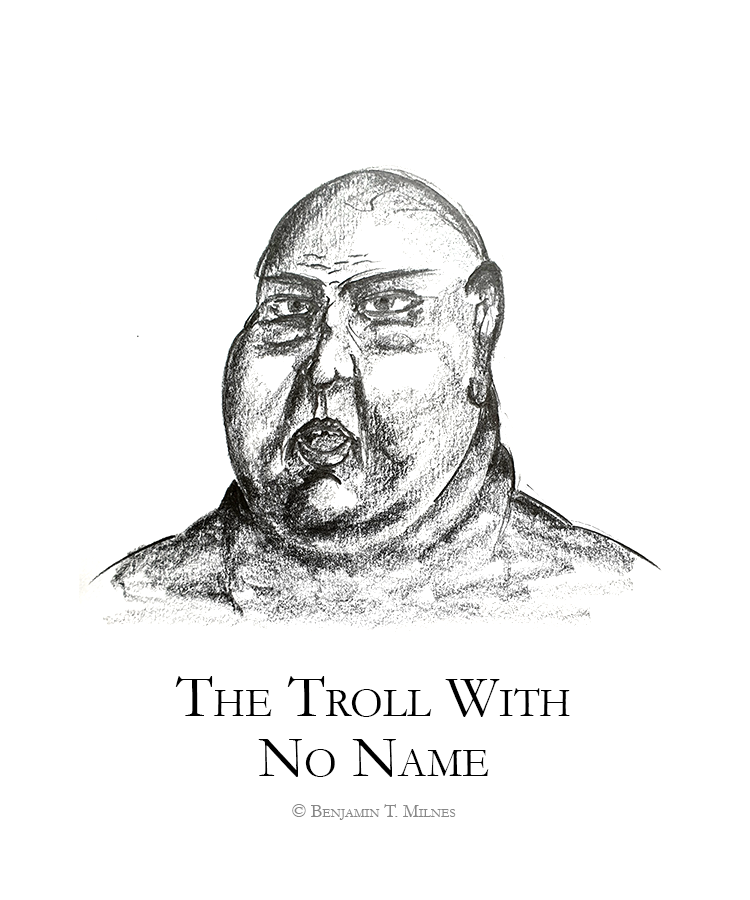I actually completely forgot about this last week – it was about Thursday or Friday before I realised that I hadn’t done it, and by that point I might as well merge it with the next week’s one.
The last two weeks have been absolutely fantastic. I have made fantastic progress on the audiobook for On The Subject Of Trolls.
The third story in OTSOT – Fluncg the Indignant – was, as I’ve said many times, very difficult to get right (both in audio form, and the original text of the story actually). I expected Hluthg the First to be a lot easier, and it was.
I had already recorded all of the audio for Hluthg the First – I did it in two parts – the first many, many months ago, and the second fairly recently. It was an easier story to read than some of the others. So I just had to edit it. I did most of this the weekend before last. I went through all of the audio, and removed all of the takes of lines that I wasn’t going to use. Then I applied the various audio effects. Then I went through and adjusted the timings of all of the lines (an essential step, as when you take out the bad lines, you’re left with completely irregular timings).
I then listened back to it to do a final check. I found that there were a few lines I wanted to re-record – I thought I could do them better – so I did. This pretty much left the audio in a finished state – I just had to do one final listen of the whole thing, then add the music.
And that’s what I did this last weekend. I checked it one last time, added the music, and it was ready to go.
I also did Plolg the Common this last weekend. Well – there wasn’t really much to do. I had already recorded and edited the audio for Plolg the Common. It’s much shorter than the other stories, so it was quite easy to do. I just had to check it and add the music.
So both stories were done. I made both into videos, and they’re both going live on my YouTube channel this week. (Hluthg the First went live yesterday; Plolg the Common is going live tomorrow.)
So finally, after two years, this project is done. I could not have imagined, when I published On The Subject Of Trolls, that the audiobook would take so long. On the one hand, this is quite annoying. On The Subject Of Trolls is not a long book – how could it take two years to create an audiobook for it? On the other hand, there’s been a huge amount of trial and error involved in creating this audiobook. I have tried lots of different things in terms of audio setup, as well as just the process for recording and editing a long piece of audio, and so it makes sense that it would have taken a long time.
In the beginning, of course, I was much more focused on creating videos of these stories – not just videos where I read out the text – videos where the stories are actually performed. This is because I like the idea of the experience of watching or listening to these stories to be as full as possible. The trolls are also very physical creatures. But making these kinds of videos is extremely difficult in itself. They take an extraordinary amount of time to record and to edit, but then there are all the usual difficulties in creating a video on top of that, like lighting and colour grading (which I don’t do yet, but would need to in order for the videos to be really good). And if these videos aren’t perfect, it can really take away from the story.
I still want to do some videos where I perform these stories, but I think this might be better suited to livestreams.
I swapped to focusing on just the audio for the stories. But even this on its own has its complications.
At first, in order to try to get the best audio quality possible, I decided to try to record in a small walk-in wardrobe that I have. The wardrobe is in the middle of the apartment, so it has thick walls around it, but then another layer of thick walls around that. It’s pretty sound-proof in there – you don’t hear anything from outside.
However, the wardrobe is so small that you can’t sit down in it – you have to stand up. It’s pretty difficult to stand and perform an audiobook for more than about half an hour, so I had to record in half-hour blocks. This is quite impractical – it can take many, many hours to record even quite a short story – stopping and starting really slows you down. It’s a lot better if you can sit down while recording.
Ideally, you do also need to be able to see what you’ve recorded on your computer screen immediately. It makes it easier to tell if something’s going wrong. In that small wardrobe, I wasn’t connected directly to my computer.
So after several attempts at recording in the wardrobe, I decided it wasn’t the best way of doing it.
There was also a lot of trial and error involved in using the right microphone. In early attempts, partly because I was in that wardrobe, I used a small Zoom recorder that I have. I bought it a few years ago, and it can produce an excellent audio quality. But I realised, over time, that in order to get that good quality, you have to use the microphone in a very specific way. You have to be extremely close to it, and it has to be angled towards your face just right. If you lean away from it, or turn your head, or change the volume you’re speaking at, the audio quality changes. This is very impractical for On The Subject Of Trolls. (When I read the stories into the microphone – particularly the trolls’ lines – I do take on the ‘big’ physicality of the trolls – I move around a lot. The trolls also shout a lot.)
Eventually I swapped to using my Samson C01U condenser microphone. I’ve had this microphone for about seven years – it’s been very useful over that time. I had previously avoided using it, however (even though it might seem like the obvious choice) because the sound it produced didn’t really sound ‘audiobook-y’. The sound that it produced just sounded like some guy reading into a microphone. (Of course, that’s what an audiobook is, but there’s a certain tone and quality to the sound of an audiobook that that microphone just didn’t produce.)
It was only after a lot more experimentation with audio effects that I figured out how to get the audio from that microphone to sound like what you typically hear in an audiobook. The two key effects are both a bass boost and a treble boost – that’s the magic. I’m not an audio engineer, but I would guess that the microphone itself has its greatest sensitivity to mid-range frequencies, and less sensitivity to higher and lower range frequencies. So these higher and lower ranges needed to be boosted in the editing to compensate. Boosting the lower ranges gives a richness to the audio – it makes it sound like the speaker is in the same room. Boosting the higher ranges gives a clarity to the audio.
So after all of that I knew where I was going to record, and what I was going to record with, but getting the process right took even more trial and error.
When it comes to actually writing stories, my process is pretty well mapped out. First I have the idea, then I write an outline, then a detailed plan, then the actual text of the story, then I just keep doing editing passes until it’s finished. It’s pretty similar to what a lot of people do. But with audiobooks, I had no such process, and it turns out what you do can have a drastic effect on how long it takes.
One thing I’ve worked out is that it is generally A LOT easier to re-record a line than it is to try to record a line perfectly the first time. If you try to get it exactly right the first time, you’ll end up having to make several attempts at it. This then gives you A LOT more stuff to have to sift through when editing to try to find the best attempt, and this is what takes a lot of time. It might seem like going back and re-recording lines would take a lot of time, because you have to slot the audio in place, and maybe re-apply effects, but it is actually less time.
Along with this, every time you have to stop and redo a line, you lose some of the fluidity in your speech – the intonation won’t quite match between that line and the previous one, and the pacing might be off. That, in turn, means you have to make more attempts at the line to get it right. It’s circular. The best thing to do is, even if you make a mistake, just carry on – fix it later.
When it comes to editing, it’s tempting to try to do everything in one pass – to remove the bad takes, record new ones, and adjust the timings. This is quite exhausting. I now split it into several distinct ‘passes’. The first pass is just to remove takes that I definitely won’t be using. Generally after that pass is when I apply the audio effects. On the second pass I go through and adjust the timings, and it’s now when I’ll re-record any lines that I want to re-record. And then any subsequent passes are to check it.
This tends to be a pretty quick way of doing the process. And it means you only have to listen to the whole track a few times. These tracks can be quite long, so you don’t want to have to listen back to them dozens of times if possible.
So, as you can see, there has been a lot of trial and error. And it’s all of this that’s meant this first audiobook has taken two years. The next one should be a lot quicker. I may also put all of this information into a video.
So that’s been the last two weeks: a lot of success with the audiobook. I will, fairly soon, attempt to make these audio tracks into an ‘actual’ audiobook, and have it available on Audible.
Also, Friday is the First of October, and three years since the publication of my first book, Zolantis. The First of October has always been a special date. I am planning to do some livestreams over this weekend to celebrate.
